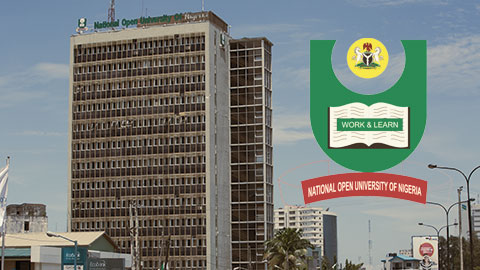National Open University Of Nigeria (NOUN) Hosted Northern Literary Writers

The National Headquarters of the National Open University of Nigeria (NOUN) in Abuja, last week, witnessed unprecedented presence of literary writers that converged from across northern states to participate in the 2017 literature conference.
It was the 11th edition of the Literature in Northern Nigeria Conference, with the theme: “Literature and contemporary development in Northern Nigeria.”
The conference had an impressive participation of literary writers and other scholars from the north.
Being a two-day conference, enough opportunity was provided for the literary writers to freely interact, get answers to their questions, establish and strengthen existing friendships, exchange ideas, knowledge, and experience, and possibly proffer solutions to identified areas of improvement in line with emerging global developments.
Critical assessment was done on the impact of literature in northern education system vis a vis the interest and passion of younger generations to pick u career in literature.
NOUN Vice Chancellor, Prof. Abdalla Uba Adamu, recalled with nostalgia, the role literature played in academic and social development of the northern Nigeria, as well as preserving its cultural heritage and history.
He commended the literary writers for such national service and challenged younger writers to reactivate such spirit, with plans to transfer same to younger ones who might use their writing prowess to initiate and drive the much-needed change in the society.
Emir of Suleja, Malam Muhammad Ibrahim, who spoke extensively on the deteriorating reading culture of the youths, suggested a change in the presentation approach of literature so that youths could easily understand and possibly develop interest in literature.
He insisted that literature will remain a source of entertainment, enlightenment and learning guide for culture, history, and tradition of the people.
The Royal Father was however worried that the 21st-century social media world has taken away the time and interest which youths are supposed to invest in studying, appealing to the renowned writers to engineer the change.
Professor emeritus, Graham Furniss, of the University of London, in his keynote address, highlighted the rich content of Hausa language and encouraged younger literary writers to take such advantage to make indelible changes in the literature world.

